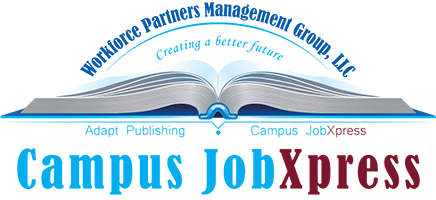
by cjxpadmin | Aug 1, 2012 | August 2012 Magazine, This Issue's FEATURE
Am I Too Old To Change Careers?
You said you want to change your career at this stage of the game? Well, let me tell you that you are never too old.
Today, most of us are finding ourselves having to work much longer than we ever imagined. The days of an early retirement have been thrown out the window, so to  speak. However, working in our later years provides an opportunity to re-invent ourselves, to re-discover our hidden talents, and to pursue new ventures. This time in our lives gives us the chance to pursue the dreams that were left untapped, those things that we really wanted to do, but couldn’t because you all of a sudden find yourself with a family and obligations. Now, we are much wiser, have a lot of experience, and have gained skills that can be utilized by an employer or by yourself to start your own business. We should, after all, be challenging ourselves.
speak. However, working in our later years provides an opportunity to re-invent ourselves, to re-discover our hidden talents, and to pursue new ventures. This time in our lives gives us the chance to pursue the dreams that were left untapped, those things that we really wanted to do, but couldn’t because you all of a sudden find yourself with a family and obligations. Now, we are much wiser, have a lot of experience, and have gained skills that can be utilized by an employer or by yourself to start your own business. We should, after all, be challenging ourselves.
According to the Kingston Business School, older entrepreneurs are more likely to be successful than their younger counterparts. Why? Because the older we get, we become more confident about our own self-worth and are more aware of our strengths and weaknesses. This is a major advantage over a young person fresh out of college who is pursuing their first career. Working for yourself allows you to become dependent on yourself versus solely relying on others to give you a job.
Even if you aren’t interested in starting your own business, use this time in your life to re-assess your career and identify the areas that you truly enjoyed. Evaluate your life and job experiences and find the direction you want your career to take.
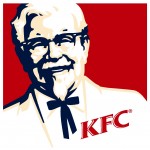 The Colonel Sanders Story has been told so many times. It’s a well known story. Colonel Sanders was 65 years old when he began franchising his infamous chicken. Prior to that, the Colonel was a gas station owner where he fried chicken for weary travelers. This story is often repeated to show that it’s never too late and one is never too old to come up with career changing ideas. However, things were different in the 1930’s. When Colonel Sanders starting serving fried chicken at a Kentucky gas station 80 years ago, he probably didn’t have as many health department hurdles to overcome as that same gas station would today. How do you know what you want to do?
The Colonel Sanders Story has been told so many times. It’s a well known story. Colonel Sanders was 65 years old when he began franchising his infamous chicken. Prior to that, the Colonel was a gas station owner where he fried chicken for weary travelers. This story is often repeated to show that it’s never too late and one is never too old to come up with career changing ideas. However, things were different in the 1930’s. When Colonel Sanders starting serving fried chicken at a Kentucky gas station 80 years ago, he probably didn’t have as many health department hurdles to overcome as that same gas station would today. How do you know what you want to do?
CareerPath.com offers online resources that determines the same answers for free. If someone wants to change careers but is having trouble deciding on a new career path, these online resources can really help. Also, the website will even suggest actual jobs worth applying for.
Always remember that there are ways to transfer the skills you have gained so far into your next career. This is your opportunity to establish your real passions, interests,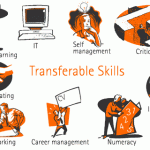 strengths and goals into your next career. However, do not forget what you have achieved or accomplished so far. None of it is irrelevant. You are simply building and growing from what you have done, even if you are taking a slightly different direction now. There is a connection there; — you just need to find it.
strengths and goals into your next career. However, do not forget what you have achieved or accomplished so far. None of it is irrelevant. You are simply building and growing from what you have done, even if you are taking a slightly different direction now. There is a connection there; — you just need to find it.
No one ever stated that we were only allowed one career path. It’s never too late to make a change. Start now. Don’t focus on your age but rather on the skills and experience you are able to offer to others. Empower yourself with this knowledge and pursue your new career path.
Choose a new you! △
“When you’re finished changing, you’re finished.”
~Benjamin Franklin

by cjxpadmin | Aug 1, 2012 | August 2012 Magazine
PREPARING FOR THE INTERVIEW
It’s a known fact that employers hire people they like, people who they can relate to or who they seem are like them somehow. Because of this, first and foremost, be likable and create a good first impression on your interview. P E O P L E get hired — experience alone does not!
The following list can help you prepare for your interview. Pay close attention and give your best interview.
 Place and time of interview: make sure you know it! Try to be there early, about 10-15 minutes early. Next, know your interviewer’s full name (the correct pronunciation as well) and his or her title.
Place and time of interview: make sure you know it! Try to be there early, about 10-15 minutes early. Next, know your interviewer’s full name (the correct pronunciation as well) and his or her title.
 Research the company. Learn everything you can about the company you are trying to get into. Learn its principal line of business, locations and yes, even annual sales revenue.
Research the company. Learn everything you can about the company you are trying to get into. Learn its principal line of business, locations and yes, even annual sales revenue.
 Envision why the hiring manager or the human resource person is interested in your qualifications.
Envision why the hiring manager or the human resource person is interested in your qualifications.
 Plan on how this opportunity could impact your immediate situation as well as your long-term career development. What can it do for your family?
Plan on how this opportunity could impact your immediate situation as well as your long-term career development. What can it do for your family?
 Always remember that an interview is a “two-way street.” Know what questions to ask. Insightful questions help both you and the interviewer to see if your relationship will be mutually rewarding.
Always remember that an interview is a “two-way street.” Know what questions to ask. Insightful questions help both you and the interviewer to see if your relationship will be mutually rewarding.
 Realize that the better you understand the opportunity at hand, the more you will be able to communicate your interest in the position. It will also help you ask better questions with regard to the job.
Realize that the better you understand the opportunity at hand, the more you will be able to communicate your interest in the position. It will also help you ask better questions with regard to the job.
 Enthusiastic smile and firm handshake are two things with which to greet your interviewer. Always wear proper attire and always, always put your best foot forward!
Enthusiastic smile and firm handshake are two things with which to greet your interviewer. Always wear proper attire and always, always put your best foot forward!
CHART OF DO’S AND DON’TS
| SOME DO’S |
SOME DON’TS |
| 1. DO plan to arrive on time or even a few minutes early. |
- DON’T arrive late for a job interview. Late arrivals are never excusable.
|
| 2. DO fill out your application neatly and completely. |
2. DON’T leave any blank spaces and DON’T rely on your resume to do the selling for you. |
| 3. DO greet the interviewer by his/her name using the correct pronunciation of their name. |
3. DON’T mispronounce his/her name. If you are unsure of it, ask the employer to repeat it. |
| 4. DO give the appearance of energy as you walk into the interviewing area. |
4. DON’T stroll into the room lazily. Smile! Firm Handshake! Be genuinely glad to be there. |
| 5. DO wait until you are offered a chair before sitting. |
5. DON’T just sit down before the interviewer. Sit up straight, be alert and look interested. |
| 6. DO be a good listener as well as a good communicator. |
6. DON’T appear bored and disinterested. Pay attention when spoken to and ask questions. |
| 7. DO look a prospective employer in the eye at all times. |
7. DON’T look away during a conversation. Maintaining eye contact shows confidence. |
| 8. DO follow the interviewer’s leads. |
8. DON’T go off on your own tangent. |
| 9. DO make sure that your good points come across to the interviewer in a factual, sincere manner. |
9. DON’T come across as egotistical, but do stress your experience, skills, abilities and achievements. |
| 10. DO always conduct yourself as if you are determined to get the job you are discussing. |
10. DON’T underestimate yourself. Never close the door on opportunity. |
| 11. DO show enthusiasm. |
11. DON’T appear blasé, nonchalant or bored. |
| 12. DO bring along at least 2-3 copies of your resume. |
12. DON’T forget to bring your resume in a neat and presentable manner. |
| 13. DO politely refuse an offer of a cigarette. |
13. DON’T smoke, even if the interviewer does and by no means, DO NOT chew gum! |
| 14. DO explain, whenever possible, any questions asked of you. |
14. DON’T respond with a simple yes or no. Give a good answer without going overboard. |
| 15. DO tell the truth. |
15. DON’T lie. Be truthful and frank. |
| 16. DO be considerate of past or present employers. |
16. DON’T make derogatory remarks of past employers. Not a good idea! |
| 17. DO answer questions politely and completely. |
17. DON’T over-answer. Stay away from politics or controversial issues. |
| 18. DO keep questions about salary and vacations to yourself. |
18. DON’T inquire about salary, vacation, bonuses, etc. on the initial interview. |
This next chart is just a brief reminder of Dressing For Success!
| Women |
Men |
| Conservative dress or suit |
If wearing suit, choose navy, gray or charcoal. |
| Avoid open-toe or sling back shoes |
Black leather shoes, polished please! |
| Conservative jewelry and perfume |
Minimal jewelry and minimal cologne |
| Hair neatly combed and not hanging in face |
Conservative haircut |
Now, it is time to check yourself and give yourself the once over right before your interview.
INTERVIEWING CHECKLIST
| Question |
✔ |
| 1. How is my physical appearance? |
✔ |
| 2. How self-assured and confident do I seem? |
✔ |
| 3. Can I communicate effectively during my interview? |
✔ |
| 4. Can I represent a return on my employer’s total investment in my pay and benefits if I am hired? |
✔ |
| 5. What are some specific examples of my achievements at work? |
✔ |
| 6. How much knowledge of the industry do I have? |
✔ |
| 7. How much do I know about my potential employer’s company? |
✔ |
| 8. Can I demonstrate with concrete examples my maturity and readiness to take on this responsibility? |
✔ |
| 9. Do I have the desire and enthusiasm to learn and grow with this company? |
✔ |
| 10. Am I exhibiting a positive attitude toward management and co-workers? |
✔ |
| 11. Am I demonstrating enough commitment and involvement in doing more than the job requires? |
✔ |
| 12. Do I understand the technical language and practices of the industry? |
✔ |
I hope these tips help you in the preparation of your interview.
Check next month and we will discuss the actual interview process itself and things to remember. Also watch for tips on the particular closing of the interview. △

by cjxpadmin | Aug 1, 2012 | August 2012 Magazine, Job Readiness
Culture at Work
Culture is at work every day and while most people think of culture as a way to distinguish their membership to an ethnic group, they seldom think of it as having an impact at their job or their interviewing process. When you apply to a job, you are automatically giving the impression that you think you would be a good fit within the company. Most  people only look at the salary and benefits being offered and never stop to think how well they would conform to the potential organization. Questions that you should ask yourself when applying for a job is, “How does the organization treat their employees or how are the employees motivated?” Organizational culture is a system of shared meaning held by members that make it unique from other organizations. In order for you to be successful at a job interview, you need to do your research and find out what kind of culture the company enforces so that you can answer interview questions in a certain way, the correct way. Job satisfaction is directly linked to how well you fit in at your work.
people only look at the salary and benefits being offered and never stop to think how well they would conform to the potential organization. Questions that you should ask yourself when applying for a job is, “How does the organization treat their employees or how are the employees motivated?” Organizational culture is a system of shared meaning held by members that make it unique from other organizations. In order for you to be successful at a job interview, you need to do your research and find out what kind of culture the company enforces so that you can answer interview questions in a certain way, the correct way. Job satisfaction is directly linked to how well you fit in at your work.
Seven characteristics that define culture at an organization are:
* innovation and risk taking
* attention to detail
* outcome orientation
* team orientation,
* aggressiveness, and
* stability.
Innovation and Risk Taking is the degree to which employees are encouraged to be innovative and to take risks. If you like to take risks at your job or you are very innovative, then, you must find out if the job you are applying to encourages their employees to function in that particular manner.
Attention to Detail is the degree to which employees are expected to exhibit precision, analysis, and to details. If you are a person who likes doing intense research or you love to analyze the logistics and details, then, an organization that motivates their employees to pay attention to detail would be a good fit for you.
Outcome Orientation is the degree to which management focuses on results or outcomes rather than on the processes used to achieve those outcomes. People who pay attention to the big picture or the end result of a project would do well in a company that has strong outcome orientation. People orientation is the degree to which management focuses on your ability to get along with others in the company and with the public. Organizations like Disney and Public Relation companies are known to value this particular characteristic.
 Team Orientation is the degree to which work activities are organized around teams, rather than individuals. This
Team Orientation is the degree to which work activities are organized around teams, rather than individuals. This
characteristic is where most people fall short because a lot of people are hesitant about working in groups.
Aggressiveness is the degree in which people are motivated to be aggressive and competitive, rather than easy going. People who are not competitive would probably have low job satisfaction versus people who thrive on competition.
 Stability is the degree to which organizational activities emphasize maintaining the status quo and contrast to growth. Companies that are high in stability are less open to change and different innovative ideas so beware if you are the type of person who likes to mix things up a little bit.
Stability is the degree to which organizational activities emphasize maintaining the status quo and contrast to growth. Companies that are high in stability are less open to change and different innovative ideas so beware if you are the type of person who likes to mix things up a little bit.
Applying to different companies should not be a random process because your happiness and satisfaction depend on how well you pick the companies you want to apply to. Some companies are strong in more than one area listed above and some are only strong in one of the characteristics listed so be aware. Your job is to decide what you value and would like to deal with on a daily basis.
 If you like companies that value risk taking and innovation or stability or perhaps you prefer team orientation, it is up to you to determine how you would like to function at your work and to find a company that allows and encourages you to do so. Read daily news about the companies you are applying to because that could give you some insight as to how they appear to the public eye.
If you like companies that value risk taking and innovation or stability or perhaps you prefer team orientation, it is up to you to determine how you would like to function at your work and to find a company that allows and encourages you to do so. Read daily news about the companies you are applying to because that could give you some insight as to how they appear to the public eye.
Another way to find out about the company is to use networking. Never underestimate networking because talking to people who work for potential companies can give you insight that is not shown to the general public. Some companies that have strong organizational cultures are Google, Hewlett Packard, and Dell. The bigger the company, the easier it will be to research what kind of company they are. Remember do your research, know what you want, and know your potential company and employer. △


by cjxpadmin | Aug 1, 2012 | August 2012 Magazine, This Issue's FEATURE
Creating Your Future
In creating your future, you need to learn how to choose to be the YOU you want to be!
We are not our actions, because we can change our actions and still be ourselves. For the same reason, we are not our thoughts, our opinions, our beliefs or our feelings. We can change all of those and still be ourselves. We are human beings. We have the power to create ourselves.
As we begin to explore the skill of becoming ourselves, it is very useful to see what being skillful is about. It is about having choices and flexibility. We can adapt, we can change and we can be bigger than we ever thought possible. This is personal skill, the skill to create ourselves, to be the people we want to be, rather than the people we were.
choices and flexibility. We can adapt, we can change and we can be bigger than we ever thought possible. This is personal skill, the skill to create ourselves, to be the people we want to be, rather than the people we were.
So far, we have seen that our lives have been shaped by the past. We see that it is possible to become aware of ourselves as we act in the present. Now we will see how it is possible to create our own future. For most people, the future is a blank. We expect it to be more of the same or expect it to just happen.
It sure is hard to see into the future. There are so many possibilities and paths to follow. Who knows what’s going to happen to us? Are we as helpless as a little rowboat being tossed about in the ocean? Or are we more like the captains of our own ships, steering ourselves from one major point in life to the next?
 Where are you steering yourself?
Where are you steering yourself?
One thing for sure, if you are reading this article, you care about your future. You care or you have a commitment to make your future better than what you have known in the past. You may not know exactly what you want, but you know you want the future to be better than the past. You will now have a chance to discover the skill you have for creating your future.
Becoming skilled means learning to change the things you can change, accepting the things you cannot change and having the wisdom to know the difference.
| Challenges Life Offer |
|
| Meeting Your Basic Survival Needs |
Food, Clothes and Shelter |
| Meeting Your Children’s Needs |
Love, Attention, Guidance |
| Finding: |
Jobs, Relationships, Money, Time |
| Staying Healthy |
Having a Body That Serves Your Purposes |
| Caring For Others |
Friends and Family |
| Conquering Your Fears |
|
| Things You Can Influence But Have No Control Over |
Things Over Which You Have Some Control |
| The other people in your life |
What you think, believe and feel |
| The circumstances that you are born into |
What you do or don’t do |
| The passing of time |
What attitudes you adopt |
| Mistakes |
What you want |
|
What you are trained to meet challenges in life |
You may not choose all the events that occur over the course of a lifetime, but you do choose how to experience those events.
Skills With Which to Build Your Future
 Success – There is no better foundation on which to build. Draw confidence from your experiences of success.
Success – There is no better foundation on which to build. Draw confidence from your experiences of success.
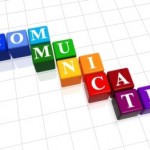 Self-Communication – Speak positively and lovingly to yourself. Keep a positive image and faith in yourself in your heart.
Self-Communication – Speak positively and lovingly to yourself. Keep a positive image and faith in yourself in your heart.
 Bonding – Create partners, allow yourself to become close to the people who mean the most to you.
Bonding – Create partners, allow yourself to become close to the people who mean the most to you.
 Values – Become clear about what matters most to you. Trust in your own values.
Values – Become clear about what matters most to you. Trust in your own values.
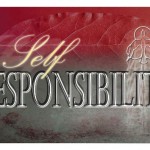 Self-Responsibility – You can be a leader to yourself. You need not depend on anyone else for your survival or success.
Self-Responsibility – You can be a leader to yourself. You need not depend on anyone else for your survival or success.

Meaning – Judgments and evaluations can either hurt you or help you in life. It is wise to know that you give the meaning to what happens for you.
Risk – The risks involved in meeting challenges head on include the possibility of messing up, looking foolish, or suffering a set-back. The rewards for taking positive risks are excitement, accomplishment and fulfillment.
Models – There is a power in learning from people who you respect and admire. We all learn from each other. Choose your models wisely and you will learn well.

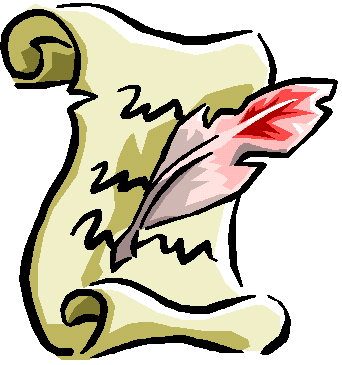
by cjxpadmin | Jul 31, 2012 | August 2012 Magazine, Job Search
Ten Hints For Writing A Great Cover Letter
From time to time, it becomes necessary for you to pull out your legal pad or notebook and sharpen up your rusty pencil to produce a much needed cover letter. Sometimes, it helps to write it out in long hand and then transfer it to your computer. Many great authors write this way.
You’ve seen that perfect job you know you are so right for and you want to let that employer know that you exist. You are here, ready for them to hire and place in that made-for-you position. That’s why you need to hone your writing skills and write your cover letter. This is a time for you to introduce yourself and let that employer know a lot more about you and your abilities, skills and experience.
So, pick up that pencil and keep these following hints in mind while you write.
- Each letter should be an original; no photocopies, please.
Plain and simple, no copies. It lets the employer know that you are dedicated to producing a quality product.
- Address the employer by name and title. Research names online or call the company directly.
With the ease of technology, it is so easy today to find this type of information on the internet. It is also helpful to know a little something about the company.
- Your first sentence should capture the attention of the employer. Refer to a mutual friend who referred you for the position. If there is no referral, then start with “Having graduated tenth in my class in the field of Elementary Education, I feel I am the perfect candidate for your position of Coordinator of Children’s Programming with your company.” You want the employer to consider you the right fit. He/she may receive hundreds of cover letters. You need to create enough interest in your opening sentence which will compel the employer to continue reading.
Make your impact on the employer about why you are writing within your first sentence. Let him/her know that you learned of this position with the company and your interest in it.
- Make your cover letter concise. A cover letter should be one page with three to six paragraphs.
Your letter should be no less than three paragraphs and no more than six. Don’t make your paragraphs very long either. Keep your letter as concise as you can but deliver your message as best you can.
- The body of your letter should highlight your experience and accomplishments. Focus on the needs of the employer. You want them to believe that hiring you will mean improved services, innovative ideas, greater efficiency or increased productivity.
Include your work experience and accomplishments in this area. Make sure your skills and abilities match those of the employer.
- Your letter should ask for an interview. State how you plant to follow up with the employer.
Make sure that you let the employer know that you are at their disposal. Let him/her know that you are flexible and can accommodate their time requirements. If you state that you are going to follow up, do it! This lets the employer know that you keep your word and you are reliable.
- Your closing should briefly summarize the body of the letter. Leave the reader with an important thought to remember you by.
This could be something as simple as expressing how much a part of their company you would like to be.
- Check and re-check your letter for errors. Look closely for mistakes in grammar, punctuation and especially spelling. Have someone else proof-read and critique it for you.
Very Important! Error-free please! Also, check your grammar.
- Select quality bond paper for your final copy. The paper you select should coordinate with the paper you use for your resume. Also, use a letter-quality or laser printer and black ink.
Your letter needs to look very professional and neat.
- Fold and mail your cover letter and your resume in a matching envelope.
Don’t fold and re-fold and have any creases other than the necessary two folds to your letter. Also neatly address your envelope, if not typed.
Sample Cover Letter
123 Main Street
Anytown, Texas 78888
(DATE)
Ms. Mary Boss
(TITLE, if known)
123 Business Drive
Anytown, Texas 78888
Dear Ms. Boss:
In the 1st Paragraph, indicate the reason for writing, the specific position for which you are applying and if there is a position opening, the source from which you learned of the job and the date it was posted. If you are inquiring about jobs in general and no opening was advertised, indicate your interest in career opportunities in your field.
I am writing to inquire about your position of Telemarketer listed on your website yesterday. I would like to apply for this position with your company.
In the 2nd Paragraph, mention why you are interested in the position or organization and its products or services. Talk about your related academic or work background as it pertains to the position you are applying. Bring attention to your qualifications, work experience and specific achievements. Mention other things that are not on your resume.
I have ten years experience in the telemarketing field. I have undergone a multitude of training programs with relation to customer service and have a vast knowledge of telemarking techniques. During the past ten years, I have accumulated several awards, certificates and plaques honoring my telemarketing abilities and accomplishments. I will call your office within the week to find out if an interview can be arranged.
In the Final Paragraph, refer the employer to your enclosed resume. You may also mention how an employer can obtain your references or credentials. Mention that you would like to have a personal interview, at their convenience. Indicate your flexibility as to time and location. Re-state your interest and eagerness to meet personally to further discuss the position. Be sure to include your telephone number and mention that you will be calling within 7 to 10 days to inquire about a possible interview. If you indicate that you will call, follow through! Thank the employer for taking time out of his/her busy schedule to read your letter and resume.
Please accept my enclosed resume and it is with great anticipation that I welcome the opportunity to personally discuss my qualifications with you, at your convenience. I am available any time. Please contact me at (317) 555-5555. Again, let me express my anticipation at learning more about your position and the possibility of working for your company. Thank you for taking time out of your busy schedule to review my resume. I look forward to hearing from you.
Sincerely,
Veronica Anderson
NOTE: Make every effort to get a specific name. If you absolutely cannot, address your letter to the correct department. If you are unable to get a specific name, do not use “Dear Sir/Madam” or “To Whom It May Concern.” Instead use something like “Dear Employer” or “Director of Human Resources.”
Thank You Letter
The following sample is provided for you to get an idea of how to write the letter to the employer to let him/her know that you appreciate the fact that they met with you. It should be very simple. All you are doing is acknowledging the fact that you are courteous and appreciative of the opportunity to meet with someone regarding a position that meets your qualifications and needs.
Again, keep in mind to use good grammar, check your punctuation and definitely check your spelling. Also, ask someone to review and critique your letter for you. It always helps to have someone else look over your shoulder and possibly, give you some pointers on how your letter can look better or be more effective.
Hope this helps you in your job search efforts. Good Luck!

Sample Thank You Letter
123 Main Street
Anytown, Texas 78888
(DATE)
Ms. Mary Boss
(TITLE, if known)
(COMANY NAME, if known)
123 Business Drive
Anytown, Texas 78888
Dear Ms. Boss:
Thank you for the opportunity to meet with you and discuss the possibility of employment with your firm.
I appreciate all the helpful information you have given me and i welcome the opportunity to put it to use and apply my own experience and techniques in the position of Telemarketer. The firm’s growth and future plans falls right in line with my goals and objectives. I would find it intriguing to be part of such a company.
My references are available and can be contacted at your leisure. Should I be able to provide yo with any further information or if I can answer any other questions for you, please do not hesitate to contact me at (317) 555-5555. I look forward to hearing from you soon. Thank you again for your graciousness and hospitality.
Sincerely,
Veronica Anderson
NOTE: Your Thank You Letter does not need to be very long. You are simply thanking the person who interviewed you for the opportunity to acquire a position at their company. Assure them that they can contact your references whenever they wish and be sure to list your telephone number again. If they wish to call you right away, your number is at their fingertips; they donʼt even have to look it up.
It is also correct to use a simple Thank You Notecard. You can still state the above-referenced comments and get the point across.

 speak. However, working in our later years provides an opportunity to re-invent ourselves, to re-discover our hidden talents, and to pursue new ventures. This time in our lives gives us the chance to pursue the dreams that were left untapped, those things that we really wanted to do, but couldn’t because you all of a sudden find yourself with a family and obligations. Now, we are much wiser, have a lot of experience, and have gained skills that can be utilized by an employer or by yourself to start your own business. We should, after all, be challenging ourselves.
speak. However, working in our later years provides an opportunity to re-invent ourselves, to re-discover our hidden talents, and to pursue new ventures. This time in our lives gives us the chance to pursue the dreams that were left untapped, those things that we really wanted to do, but couldn’t because you all of a sudden find yourself with a family and obligations. Now, we are much wiser, have a lot of experience, and have gained skills that can be utilized by an employer or by yourself to start your own business. We should, after all, be challenging ourselves. The Colonel Sanders Story has been told so many times. It’s a well known story. Colonel Sanders was 65 years old when he began franchising his infamous chicken. Prior to that, the Colonel was a gas station owner where he fried chicken for weary travelers. This story is often repeated to show that it’s never too late and one is never too old to come up with career changing ideas. However, things were different in the 1930’s. When Colonel Sanders starting serving fried chicken at a Kentucky gas station 80 years ago, he probably didn’t have as many health department hurdles to overcome as that same gas station would today. How do you know what you want to do?
The Colonel Sanders Story has been told so many times. It’s a well known story. Colonel Sanders was 65 years old when he began franchising his infamous chicken. Prior to that, the Colonel was a gas station owner where he fried chicken for weary travelers. This story is often repeated to show that it’s never too late and one is never too old to come up with career changing ideas. However, things were different in the 1930’s. When Colonel Sanders starting serving fried chicken at a Kentucky gas station 80 years ago, he probably didn’t have as many health department hurdles to overcome as that same gas station would today. How do you know what you want to do? strengths and goals into your next career. However, do not forget what you have achieved or accomplished so far. None of it is irrelevant. You are simply building and growing from what you have done, even if you are taking a slightly different direction now. There is a connection there; — you just need to find it.
strengths and goals into your next career. However, do not forget what you have achieved or accomplished so far. None of it is irrelevant. You are simply building and growing from what you have done, even if you are taking a slightly different direction now. There is a connection there; — you just need to find it.